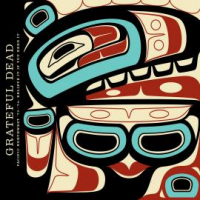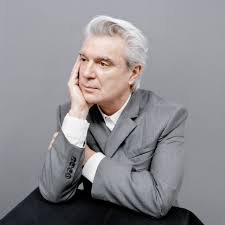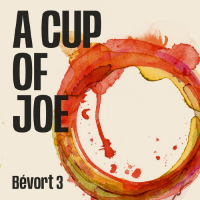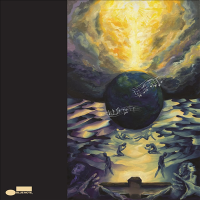Home » Jazz Articles » Album Review » Grateful Dead: Pacific Northwest '73-'74: Believe It If ...
Grateful Dead: Pacific Northwest '73-'74: Believe It If You Need It
What distinguished the Grateful Dead's approach to improvisation was not just a willingness to completely abandon song structure, but also the imagination to then collectively and individually seek out themes of melody and rhythm for further exploration. And most of the varying lineups over their thirty-year live history also manifest the necessary confidence to gradually return to the original point of departure (and sometimes somewhere altogether different), lingering in their descent at various stages before gliding to the ground or, just as often, hitting it running for a rousing conclusion. To wit, on this third disc, the progression of "The Other One" to "Wharf Rat" then "Sugar Magnolia." typifies band's feel for nuance an attribute as impeccable as Lemieux' own ear for subtlety.
The wildly innovative sound system the Grateful Dead employed during the '73-'74 period covered in this set allowed the band to hear themselves as fully and clearly as the audience did, so it only stands to reason their musicianship would rise to such elevated levels. In describing the context from which Believe It If You Need It derives, Jesse Jarnow's essay in the enclosed book unfolds much like the playing and singing of the band, so while the logic of his prose may at times seem difficult to grasp, (particularly the non-sequitur relating Jerry Garcia'senforced airport holdover), it is otherwise of a piece with the musicianship: witness this triumphant forty-seven minutes of "Playing in the Band" during which the group reaches various points of emphasis that sound as inevitable as the final denouement.
In keeping with the unusually seamless nature of product such as Believe It If You Need It, close inspection of Roy Henry Vickers' original artwork of reveals patterns of continuity comparable not only to the Dead's most open-ended improvisational excursions, but also to the more structured aspects of their music. At this juncture of their career, the group was courageously composing material directly evolved from their playing than at any other time, the result of which is the elasticity of the progression within "Birdsong," but even more notably the respective structures of "Eyes of the World" and "Here Comes Sunshine:" the patterns of both those numbers resemble excerpts from a sterling jam to which ultra-literate wordsmith Robert Hunter composed poetry as evocative in its own way as the instruments in action.
In line with the various entrepreneurial endeavors the Grateful Dead embarked upon around this time, including their own independent record label(s), the 'Wall of Sound' in use on these tours may have been relatively short-lived, but it did nevertheless pre-dated the sonic excellence applied to recordings such as those comprising Pacific Northwest '73-'74. The efforts of group's designated engineer, Jeffrey Norman, along the Plangent Processes team of Jamie Howarth and John Chester, are a natural extension of the concept at the heart of the Grateful Dead's live sound as captured fifty-plus years ago: comparatively brief numbers such as "Sugaree" and "He's Gone" come resoundingly alive by turning up the volume.
And, just as the Grateful Dead set the standard for concert audio then, the overall archiving effort headed by David Lemieux ascends to the same level. In so astutely utilizing the vault contents at its disposal for a package such as Believe It If You Need it, the production team consistently reveals more and more of the depth of artistry in the visionary work of the Grateful Dead.
Track Listing
CD 1: China Cat Sunflower; I Know You Rider; Bird Song; Box Of Rain; Brown-Eyed Women; Truckin'; Jam; Not Fade Away; Goin' Down The Road Feeling Bad; One More Saturday Night. CD 2: Here Comes Sunshine; Eyes Of The World; China Doll; Playing In The Band. CD 3: Sugaree; He's Gone; Truckin; The Other One; Wharf Rat; Sugar Magnolia.
Personnel
Grateful Dead
band / ensemble / orchestraJerry Garcia: lead guitar, vocals; Bob Weir: rhythm guitar, vocals; Keith Godchaux: keyboards; Phil Lesh: electric bass, vocals; Bill Kreutzmann: drums; Donna Jean Godchaux: vocals
Album information
Title: Pacific Northwest '73-'74: Believe It If You Need It | Year Released: 2018 | Record Label: Rhino
Tags
About Grateful Dead
Instrument: Band / ensemble / orchestra
PREVIOUS / NEXT
Support All About Jazz
 All About Jazz has been a pillar of jazz since 1995, championing it as an art form and, more importantly, supporting the musicians who make it. Our enduring commitment has made "AAJ" one of the most culturally important websites of its kind, read by hundreds of thousands of fans, musicians and industry figures every month.
All About Jazz has been a pillar of jazz since 1995, championing it as an art form and, more importantly, supporting the musicians who make it. Our enduring commitment has made "AAJ" one of the most culturally important websites of its kind, read by hundreds of thousands of fans, musicians and industry figures every month.






















